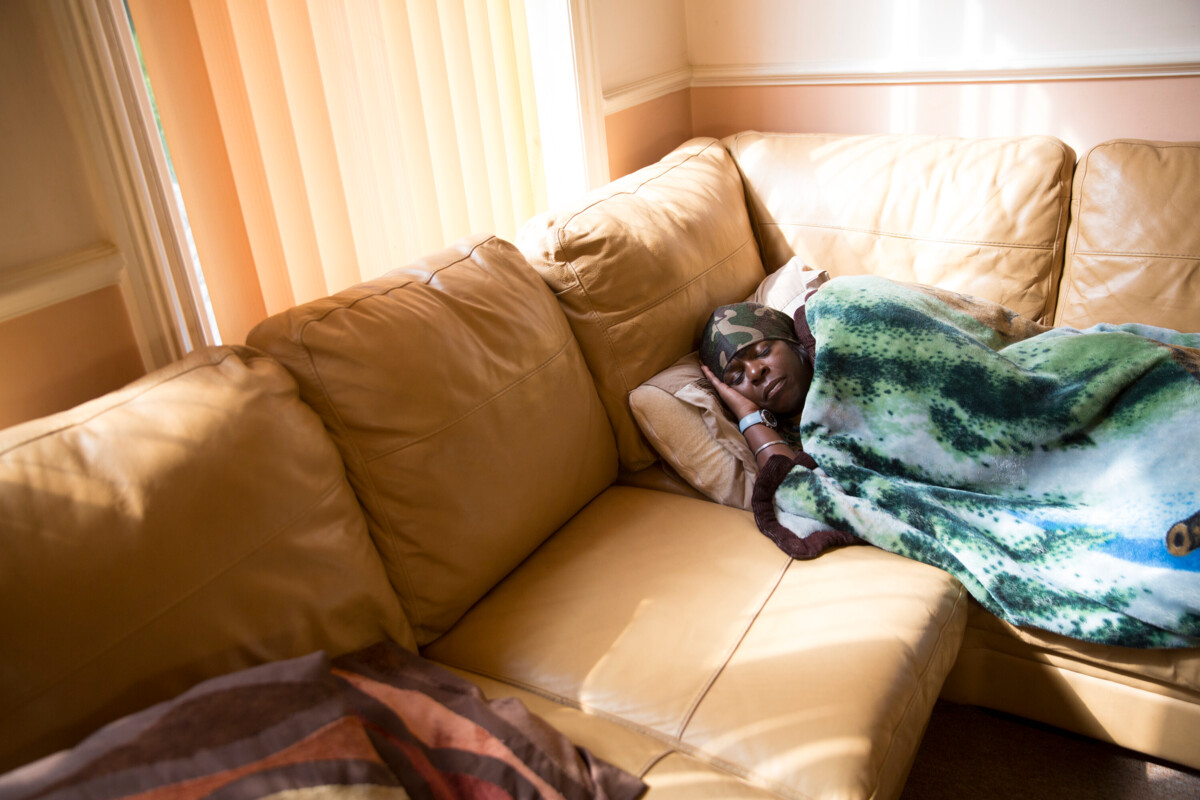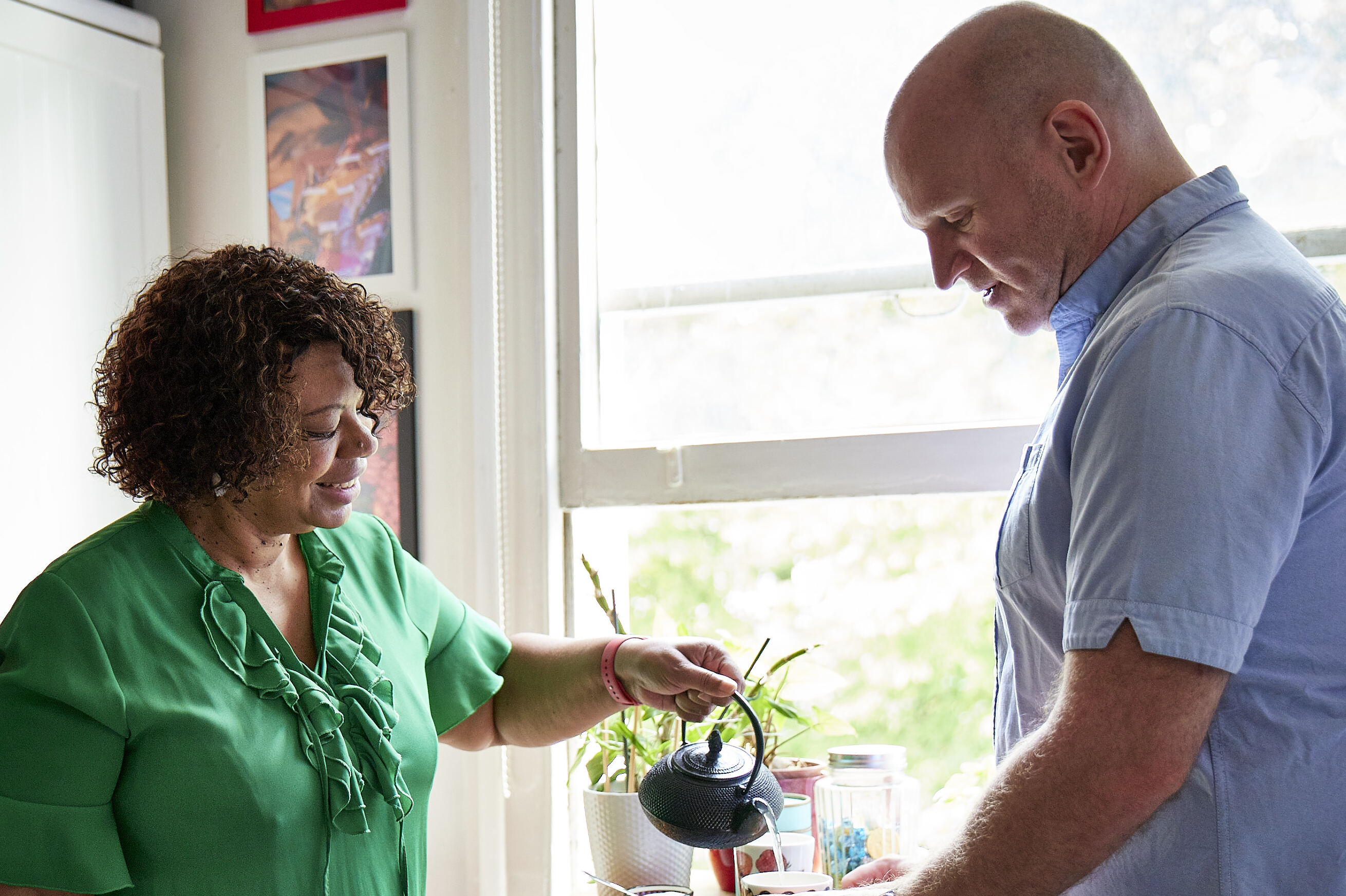Cancer in the LGBTQ+ community - what you need to know
In this article we bust some common myths about cancer in the LGBTQ+ community and point you to where you can get more information and support.
Myth 1: Being LGBTQ+ gives you cancer
Some people believe that being LGBTQ+ gives you a higher risk of cancer.
“As a gay man, I did wonder whether or not the cancer was caused by my lifestyle; all of the clubbing and partying and fun that I had, not looking after myself properly.” Alan’s story.
Being LGBTQ+ does not increase your cancer risk
Some lifestyle factors do affect cancer risk. Smoking, being overweight, and sun or sunbed exposure can all increase your risk of cancer.
You can reduce your risk of cancer and improve your general health by making healthy lifestyle choices, such as:
- Stopping smoking
- Keeping to a healthy weight
- Limiting alcohol
- Taking care in the sun
Read more about cancer risk factors.
Infections such as HIV and HPV are linked to some types of cancer. We have more information about lymphoma and HIV and HPV and cancer. You can reduce your risk of sexually-transmitted infections by practising safer sex. Find out more in the British Association for Sexual Health and HIV guide to safer sex.
There are other socio-economic factors which can increase cancer risk for LGBTQ+ communities. These include misconceptions about cancer screening, negative experiences or additional barriers to accessing appropriate healthcare, information and support.
Myth 2: Screening and prevention doesn’t apply to me
It is important to understand which types of screening you can have. If you are unsure, ask your GP. And you should be aware of any health symptoms that are out of the ordinary for you and get these checked.
- Cervical screening is for anyone between the ages of 25 and 64 who was assigned female at birth and still has a cervix. This can include cisgender women, trans men and non-binary people who were assigned female at birth.
- Cervical screening is important for anyone who has ever been sexually active, whatever your sexual orientation. And it is important to have, even if you have had the HPV vaccination.
- If you are registered as female with your GP, you will automatically be sent cervical screening invitations. If you are registered as male and need cervical screening, your GP can arrange screening for you.
Trans and Non-Binary breast/chest screening video
This video from the Rainbow Project explains what to expect a breast/chest screening appointment to look like for Trans and Non-binary individuals attending in Northern Ireland.
People may also delay routine check-ups, screenings and other early detection exams for other reasons.
These can include:
- lack of awareness about who can have screening
- not receiving an invitation to screening
- worries about discrimination or negative healthcare experiences
- and gender dysphoria
Read our cancer screening information for transgender (trans) and non-binary people. It includes advice about cancer screening, cancer risk and cancer treatment.
Having screening can reduce your risk of cancer and may save your life. Diagnosing cancer early can mean treatment is more effective and less complex. The earlier a cancer is diagnosed, the better your chance of survival.
Read Lauren's experiences of being diagnosed with cervical cancer.
Myth 3: You shouldn't come out to your healthcare team
You do not have to come out to your healthcare team. But it may be an important part of who you are. It might be helpful for your team to know. And you might have some specific questions about how cancer and cancer treatments will affect things like your sexual well-being or body image.
Your team should treat all information about you confidentially. They may only share information with other healthcare professionals when it is needed for your care.
Sometimes it is important to be out to your healthcare team. For example, some scans should not be used during pregnancy. If the gender on your NHS record is male and there is a chance you might be pregnant, it is important that the person doing the scan understands this.
Sometimes healthcare does not work so well. For example, healthcare professionals may wrongly think they know what you need based on the sex you were assigned at birth or your appearance. They may not ask about or use the right pronouns. At worst, LGBTQ+ people may be treated differently, unfairly or without respect.
The NHS aims to provide healthcare to everyone. This means providing the right care and support to people of all genders and sexual orientations. It is against the law to discriminate against someone because of their sex or gender reassignment.
Facing discrimination can be stressful and upsetting. It may be especially difficult when you are already dealing with cancer. If you are being treated unfairly, we have more information about being treated differently if you are LGBTQ+.
The Macmillan Support Line offers confidential support to people affected by cancer and their loved ones. You can call for free on 0808 808 00 00 or talk with an adviser by email or online chat.
You might also find it helpful to talk with others in our Online Community. LGBTQIA+ forum - Macmillan Online Community and read their blog LGBTQIA+ support and safety on the Online Community.
Other organisations who can help
OUTpatients have information for LGBTQ+ people about cancer including about screening and sex with and beyond cancer.
The LGBT Foundation 03453 30 30 30. can give you confidential advice and support.
Transactual - provide information about cancer screening and signposting to trans inclusive organisations.
About our information
This information has been written, revised and edited by Macmillan's Digital Content Editor team and checked by Macmillan's Cancer Information Development team.
Learn more about our Digital Content Editors and how we produce our cancer information.
About the author

Ros Ayres
Read more
-
Blogs 15 Feb 2023The cost of food and the weekly shop are continuing to rise. Recent events mean the price of certain food items such as salad and fruit have gone up or there's a shortage in the shops. This can make...
-
Blogs 28 Feb 2023Sleep disturbance or difficulty sleeping is a common problem for people living with cancer. If you are struggling to get enough sleep, you may be feeling stressed and anxious. You may worry about how...
-
Blogs 01 Aug 2024Here you will find practical advice and emotional support as you adjust to life after cancer treatment. We have information about returning to work, managing your emotions, dealing with side effects...






